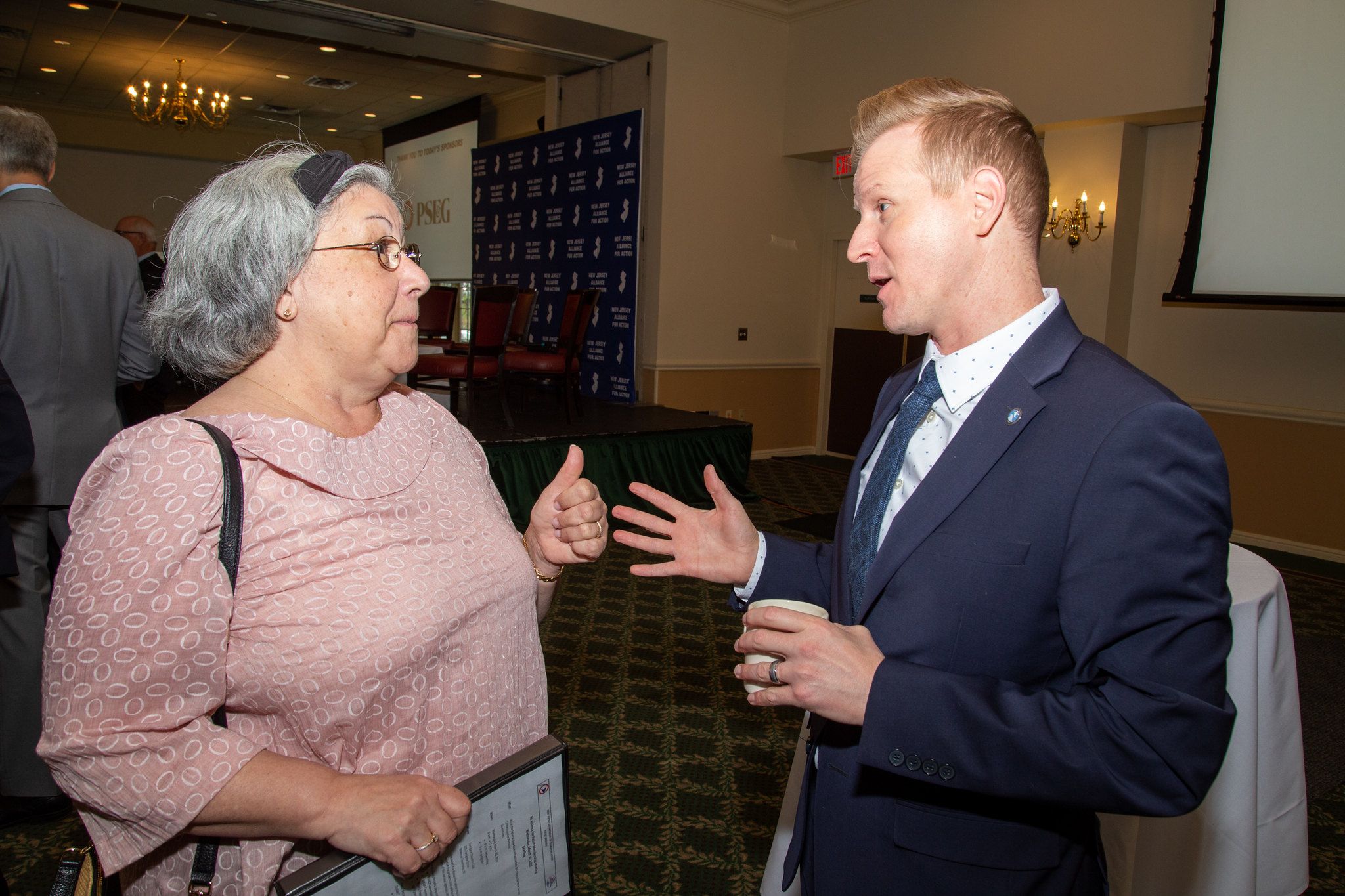Get Issuer Alerts
Add this issuer to your watchlist to get alerts about important updates.
The New Jersey Infrastructure Bank Co-Sponsors an Alliance for Action (AFA) Event Focused on What the Bi-Partisan Infrastructure Law (BIL) Means for New Jersey
View allMarch 30, 2022

The Infrastructure Investment and Jobs Act (IIJA) was front and center at the AFA’s live event on March 30th. The event featured four agency heads who described how the estimated $13 billion in federal BIL funds coming to New Jersey will support the State’s economic, environmental, and social justice goals. NJ DOT Commissioner, Diane Gutierrez-Scaccetti, spoke on how transportation funds will rebuild the State’s roads, and bridges and provide better, safer pathways for pedestrians and cyclists. NJ DEP Commissioner, Shawn LaTourette described the funds being made available to expand access to clean drinking water emphasizing the importance of environmental health for economic vitality. NJ BPU President, Joe Fiordaliso informed listeners on the Board’s plan to promote and facilitate access to broadband. NJ Transit Senior Vice President of Capital Programs, Eric Daleo presented projects that NJ Transit has for improving the State’s rails and rapid transit lines. Each leader noted the common initiative by all their agencies to support resiliency and clean energy projects. An important message for the AFA membership in attendance was that the funds and associated infrastructure projects are likely to create over 15,000 direct construction jobs each year for the next 10 years.
Of particular interest to prospective Water Bank and Transportation Bank project sponsors were comments made by the Commissioners of the NJ DOT and NJ DEP.
Commissioner Gutierrez-Scaccetti framed her discussion around the challenges of moving people and freight up and down New Jersey’s coast, citing corrosive salt on the roads and climate change increasing the frequency and power of storms. The Commissioner hailed the BIL legislation as helping to repair and rebuild New Jersey roads and bridges with a focus on climate change mitigation, resilience, equity, and safety with $4.1 billion anticipated for Transit, $6.9 billion for highways, an additional $1.4 billion for bridges, $104 million for electric vehicle charging stations and $25 million for ferry facilities. Gutierrez-Scaccetti addressed those who serve municipalities and counties to encourage their clients to take advantage of the I-Bank’s Transportation Bank financing program noting that the I-Bank’s low-cost short-term financing could be used either to directly financing a project, or in conjunction with DOT’s Local Aid Grants to finance excess costs, or to jump start project construction in advance of the receipt of grant funds whereby the grant funds could be used subsequently to pay back the principal of those I-Bank loans.
Commissioner LaTourette opened his remarks by reaffirming the NJ DEP’s central role to promote the public good, stating “Our work sits squarely at the intersection of environmental health, social, and economic improvement.” He noted the State’s $30 billion need for water infrastructure due to historic underinvestment and stressed the Department’s intention to help steward water and flood resistance issues as well to work in concert with other agencies towards the electrification of public vehicles.
The Commissioner noted that over the next five years, the BIL will provide an additional $445 million for clean water SRF projects, noting the systemic need to address combined sewer systems, $193 million for drinking water SRF projects, $244 million for lead service line removal, $65 million for Polyfluoroalkyl Substances (PFAS) projects and an additional $38 million to address the causes of harmful algal bacteria outbreaks (HABs). LaTourette commended the I-Bank and its long and successful partnership with the NJ DEP’s State Revolving Fund program (SRF) in financing the construction of critical environmental infrastructure and saving rate payers almost $3 billion in financing costs over the years.
In addition to water infrastructure, the Commissioner expressed the importance of flood resistance infrastructure, shore restoration and the Ida recovery bill and confirmed that NJ DEP would be partnering with State’s Department of Community Affairs to spend $230 million on flood resistance. He also explained that there were federal funds planned for school and transit buses, and vehicle charging corridors in accordance with Governor Murphy’s clean energy goals.
The panel discussion on “Getting the Most for New Jersey out of Federal Infrastructure Dollars” was moderated by Paul Monte, Co-Managing Partner at Peckar & Abramson, included Darlene Regina, COO at ACCNJ, Joseph A. Fiordaliso, President, American Council of Engineering Companies of NJ, Robert McDonough, Managing Director, Marsh & Marsh, Steven Gardner, Director, NJ LECET, and Dan Kennedy, Senior Director, UTCA of NJ.
One of the main themes of the panel was the challenges that exist backfilling engineering and construction jobs given the expected influx of project dollars from the BIL and current labor force retirements. Mr. Fiordaliso noted that the short-fall of engineers is exacerbated because the majority of recent engineering graduates are more interested in “designing software rather than designing culverts.” All the panelists agreed that, while the BIL is a good start, additional funds are required to meet the public health, environmental and economic infrastructure needs of the country.
